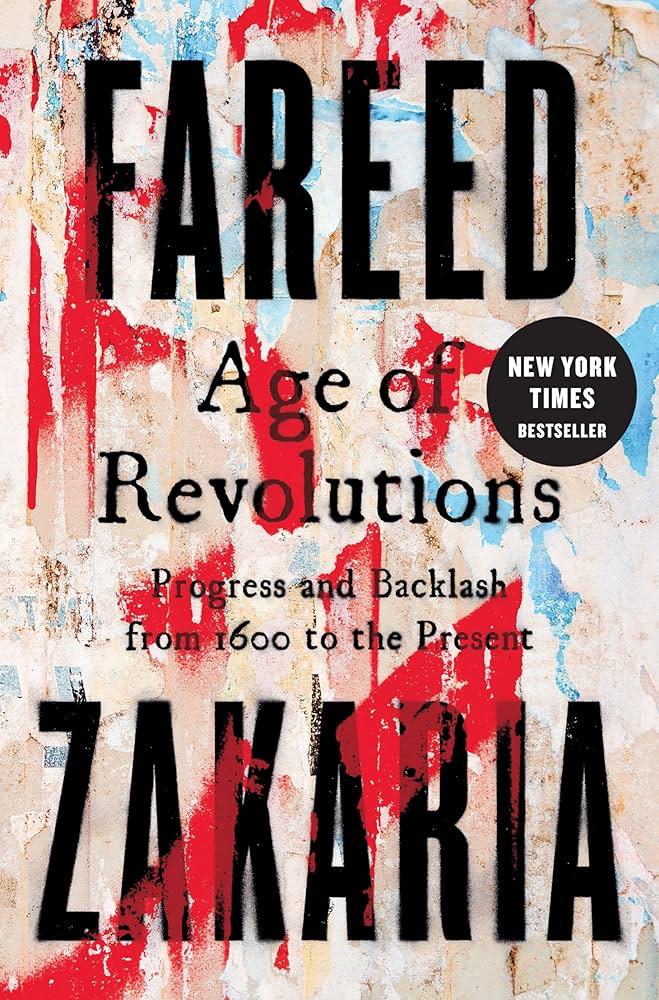In 1983, a young Fareed Zakaria stepped onto a plane, leaving India for the US. His destination was Yale University, one of the world’s finest institutions. This journey marked the beginning of a profound personal and intellectual transformation for the man who would go on to become one of the leading global voices in foreign policy.
The world Zakaria entered was complex: the Cold War was still ongoing, the US was undergoing economic deregulation, and shifts in the cultural landscape would come to define the next decades. This early period, even before identity politics fully took hold, was marked by growing movements for civil rights, gender equality, and a broader sense of social justice.
For Zakaria, coming from an India still navigating its path toward economic and political modernization, the shift to America’s rapidly evolving landscape was a significant turning point. It offered a unique vantage point: an outsider’s perspective on American (and, by extension, Western) values, history, and the liberal order. This journey would later inspire him to declare, “I am an American by choice.”

Zakaria was raised in a highly intellectual and politically active family in Mumbai, India. His father, Rafiq Zakaria, was a well-known politician and scholar, while his mother, Fatima Zakaria, was a respected journalist. At Yale and later Harvard, he studied under renowned thinkers like Paul Kennedy, Stanley Hoffmann, Joseph Nye, and Samuel Huntington. These influential figures shaped his intellectual journey, and their impact is evident in his writing, including his latest book, “Age of Revolutions: Progress and Backlash from 1600 to the Present.”
This rich blend of the personal and the global is what makes "Age of Revolutions" both insightful and intimate. Drawing on his background in both academia and journalism, Zakaria closely examines the major cultural, technological, and economic changes that have shaped the modern world.
In a recent conversation at the 92NY Festival with Malcolm Gladwell, Zakaria reflected on how his immigrant experience gave him a unique outsider’s view of America — one that allowed him to see both its strengths and flaws with a fresh perspective. His deep awareness of the world beyond America’s borders gives him an appreciation for the country that many critics, he suggests, often take for granted. This broader perspective reinforces his strong belief in the liberal order, setting him apart from those who seek to “revise” or “correct” American history.
‘Age of Revolutions’ delves into the political, economic, technological, and cultural shifts that have defined the modern world, constantly shaping and reshaping societies and identities.
“Age of Revolutions” delves into the political, economic, technological, and cultural shifts that have defined the modern world, constantly shaping and reshaping societies and identities. He begins by reflecting on the double meaning of the word “revolution,” which originally referred to the orderly movement of planets before evolving to signify radical, disruptive change. He then explores the dual nature of revolutions, demonstrating how times of transformative change often drive societies forward while simultaneously sparking resistance. This tension between progress and resistance is a central theme in Zakaria’s argument.
The book is divided into two parts: historical revolutions and contemporary disruptions. In the first part, Zakaria revisits key Western revolutions like the Dutch “first liberal revolution,” the English “glorious revolution,” the French “failed revolution,” and the Industrial Revolution in Britain and the US, calling the latter “the mother of all revolutions.” He analyzes how these events reshaped social and global orders. His take on the Dutch experiment, in particular, feels both fresh and insightful. In the second part, Zakaria explores contemporary revolutions, such as globalization, the rise of the digital age, identity politics, and the shifting geopolitical landscape marked by the decline of US dominance and the rise of emerging powers.
In a key chapter, Zakaria traces a recurring historical pattern: revolutions begin with significant structural shifts, manifested in technological advancements, economic expansions, and the spread of global networks. These changes give rise to movements that disrupt established identities and drive societies forward. Yet, these same forces also provoke efforts to reclaim heritage and restore stability. From 16th-century Holland to today, these forces have continually reshaped how people view themselves and their world.
As I read Zakaria’s reflections during this moment of unprecedented transformation in Saudi Arabia, the book felt especially relevant. Vision 2030 is a bold, ambitious blueprint for Saudi Arabia’s future, but it is also a delicate balancing act — one that seeks to blend progress with tradition. Zakaria notes this trend among rising powers like Saudi Arabia, Brazil, and Turkiye, describing these nations as “stronger economically, prouder culturally, and bolder geopolitically.” This nuanced observation mirrors Saudi Arabia’s trajectory, as it strives to navigate transformation while remaining true to its roots and grounded in its core values.
Zakaria also rethinks traditional political dichotomies. As political divisions are now cultural more than economic, he proposes an “open vs. closed” framework instead of the typical “right vs. left” paradigm. Open societies embrace diversity, globalization, and change, while closed societies retreat into protectionism and an excessive focus on nationalistic pride. He credits Tony Blair for recognizing this shift and encourages us to reconsider how we understand today's political dynamics.
In “Age of Revolutions,” Zakaria’s signature blend of historical insight, contemporary analysis, and personal narrative serves as a guide for understanding today’s monumental transformations and navigating the future. His journey from Mumbai to becoming a global voice exemplifies how personal experience intersects with larger global forces. It is a reminder of the interconnectedness of our personal stories and the broader shifts shaping modern history.
• Dr. Hatem Alzahrani is a writer, cultural advisor, and academic specializing in Middle Eastern cultures. He received his MA from Yale University in 2014 and his Ph.D. from Georgetown University in 2019. He is a member of the International Arts Advisory Committee at the Middle East Institute.












